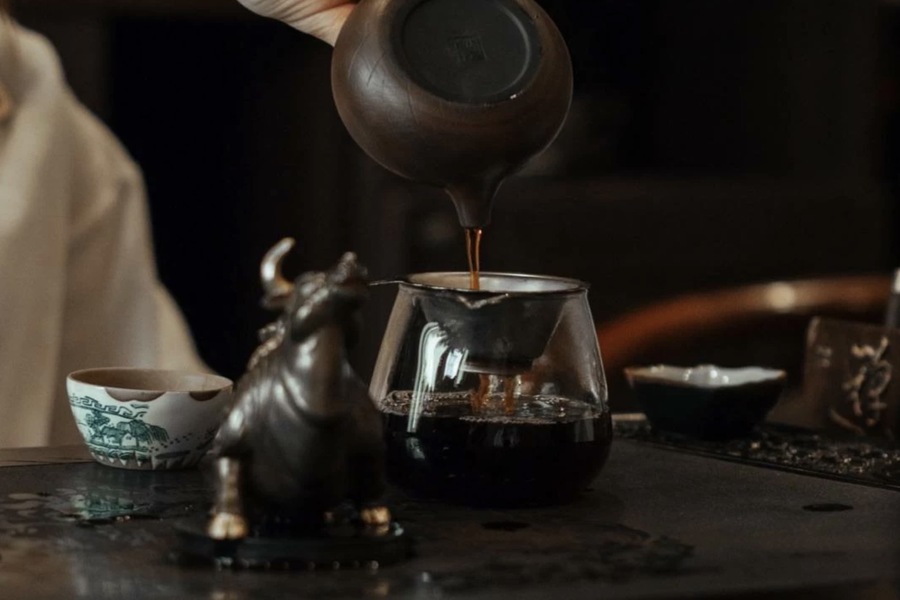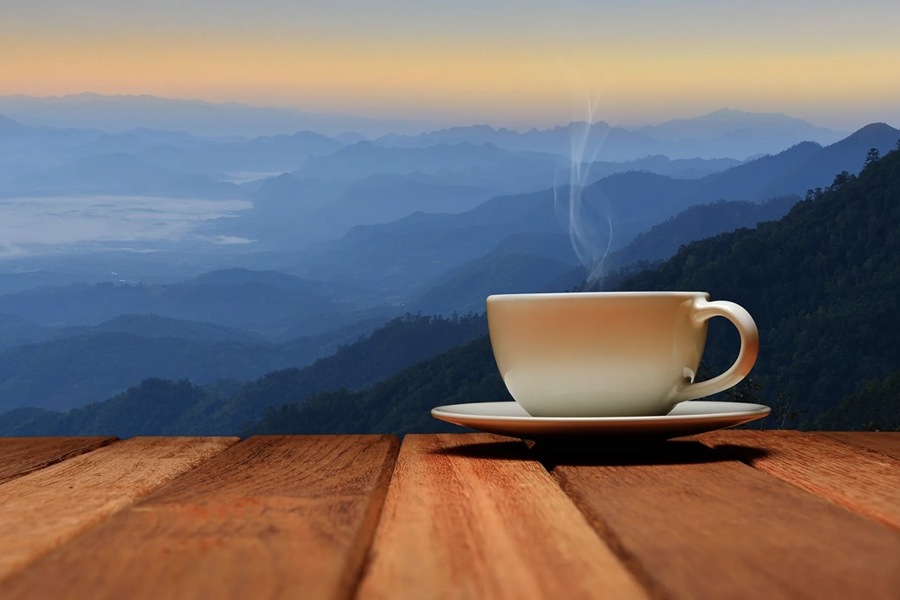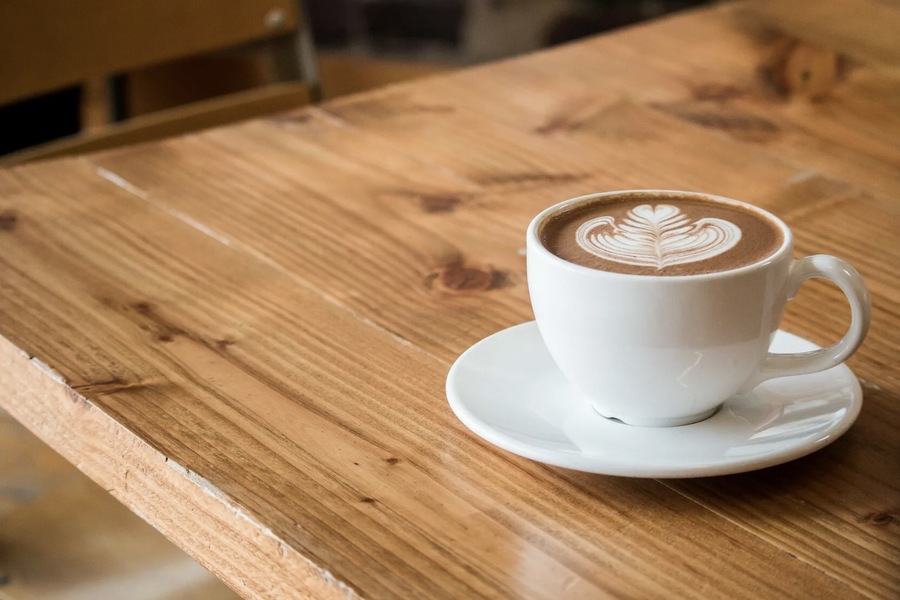For millions of people around the world, the day begins with a cup of coffee—a ritual that transcends borders, cultures, and languages. It’s not just a beverage but a moment of solace, a burst of energy, and, for many, the indispensable start to the morning. From the hustle and bustle of New York City to the serene coffee plantations of Ethiopia, coffee is a shared experience. While instant coffee may suffice for a quick fix, true coffee connoisseurs understand that nothing compares to the rich, aromatic complexity of freshly brewed coffee. This is especially true in places like Dubai, where coffee is treated with a level of reverence that reflects centuries of tradition and cultural significance.
If you were to order an instant coffee in one of Dubai’s esteemed cafés, you might be met with raised eyebrows or even a chuckle. In the Arab world, and particularly in the UAE, coffee is sacred. It’s a cultural symbol of hospitality, respect, and community. The best coffee shops in the country are not just places to grab a drink—they are sanctuaries where coffee lovers can indulge in the finest brews, often accompanied by a slice of tradition and storytelling.
Coffee: The Bean of Life
At its most fundamental level, coffee is a drink made from roasted and ground beans of the coffee tree, a tropical evergreen plant that thrives in warm, humid climates. The coffee tree is an impressive specimen, growing up to 8 meters tall and boasting a lifespan of 60 to 70 years. During its flowering period, the tree produces fragrant white flowers, followed by red or burgundy fruits known as “coffee cherries.” Inside these cherries are the seeds that we know as coffee beans. Each fruit can contain one to three beans, which are initially yellow-green-gray in color before roasting transforms them into the rich brown hue synonymous with coffee.
The process of roasting is crucial to the flavor and character of the coffee. Before they are roasted, coffee beans have a bland taste and little aroma. Roasting not only darkens the beans but also activates the oils and compounds that give coffee its unique flavor profiles. Depending on the level of roasting, the taste can range from bright and acidic to dark and smoky, catering to a wide spectrum of preferences.

Roasting Levels: The Secret to Flavor
The roasting process is both an art and a science. The flavor, aroma, and even caffeine content of coffee beans are largely determined by how long and at what temperature they are roasted. There are four primary degrees of roasting, each offering its own unique taste experience:
- Light Roast
Roasted at temperatures up to 205°C, light roast beans have a light brown color and a bright, acidic taste. Often described as having fruity or floral notes, this roast preserves the most caffeine and natural flavors of the bean, with a caffeine content of around 1.37%. This type of roast is preferred by those who enjoy a vibrant, tangy flavor. - Medium Roast
With temperatures reaching up to 219°C, medium roast beans develop a balanced flavor profile. The acidity is toned down, making way for a fuller-bodied flavor. The beans turn a rich brown, and the resulting brew has a more muted acidity with a caffeine content of around 1.31%. This roast is a favorite for its versatility, as it strikes a balance between acidity and richness. - Dark Roast
Dark roast beans, roasted at temperatures as high as 245°C, take on a deep black-brown color. This roast produces a coffee with a bold, smoky flavor and a noticeable bitterness. Notes of nuts, spices, and chocolate often come through in dark roasts, making them a favorite for those who enjoy a strong, robust cup. The caffeine content is slightly lower than that of lighter roasts, but the depth of flavor makes up for it. - Espresso Roast
Often grouped with dark roasts, espresso beans are roasted at a high temperature for an extended period to develop their intense flavor. This roast is specially crafted for espresso machines and results in a rich, concentrated shot of coffee with a thicker body and a complex flavor profile. It’s the go-to for those who love a short, powerful coffee experience.
Apart from the roasting level, the grind size also plays a crucial role in how the coffee tastes. Coarse grinds are typically used for French press or cold brew, while fine grinds are ideal for espresso. Freshly ground coffee is always preferred, as pre-ground coffee tends to lose its aromatic oils and flavor compounds quickly.
The Stimulant Effect: The Power of Caffeine
One of the key components of coffee, and the reason so many people rely on it to jump-start their day, is caffeine. Caffeine is a natural stimulant that affects the central nervous system, helping to increase alertness, improve mood, and enhance focus. Within minutes of drinking a cup of coffee, the caffeine enters the bloodstream, stimulating the brain and blocking the neurotransmitters that cause fatigue.
Caffeine is known to improve short-term memory, increase reaction times, and boost concentration, which is why it’s a popular choice among students, professionals, and anyone needing an energy boost. However, caffeine also increases the heart rate and blood flow, which is why people with certain health conditions are advised to limit their coffee intake. Despite its temporary effects, coffee offers a variety of health benefits when consumed in moderation, including potential protection against neurodegenerative diseases and improved metabolic function.
Coffee in the Middle East: A Cultural Icon
In the Middle East, coffee holds an even deeper significance. It is an integral part of Arab culture, symbolizing hospitality, sophistication, and generosity. Offering coffee to guests is a time-honored tradition, and it is considered impolite not to serve coffee soon after a visitor’s arrival. In fact, coffee is so essential to Middle Eastern hospitality that refusing a cup could be seen as an insult.
The tradition of coffee in the Arab world goes back centuries, and it is believed that coffee originated in Ethiopia before making its way to Yemen and then throughout the Arabian Peninsula. Today, the Middle East is one of the largest consumers of coffee, with over $7 billion spent annually on coffee consumption. Per capita coffee consumption in the region averages 3.5 kilograms per year, which is significant given the importance placed on the ritual of drinking coffee.
The coffee experience in the Middle East is unique in that it often involves the use of spices. Cardamom is a particularly popular addition, giving the coffee a warm, aromatic flavor that has become a signature of Arabic coffee. In the UAE, it is common to be greeted with a small cup of coffee flavored with cardamom, ginger, or saffron—a tradition that dates back to the Bedouins, who brewed their coffee over an open fire. Even today, the preparation of Arabic coffee is a meticulous process involving multiple steps of boiling and pouring between pots to achieve the perfect brew.
The Art of Brewing Arabic Coffee
The preparation of Arabic coffee, or qahwa, is an art form in itself. Traditionally, the coffee is brewed in a pot called a dallah, a symbol of Arab hospitality. The process involves slowly heating the coffee over a fire or stove, often adding spices like cardamom for extra flavor. The coffee is then poured into another pot and brought to a boil again. This procedure is repeated several times to ensure a rich, robust flavor. Before serving, the host always tastes the coffee first as a gesture of goodwill, signaling to the guests that the coffee is ready to be enjoyed.
Once prepared, the coffee is served in small, handleless cups called finjans. These cups are filled only halfway to allow for easy drinking, and it is customary for guests to accept no more than three refills. Drinking more than three cups is considered a breach of etiquette, though guests are always welcome to decline the offer after the first cup by gently shaking the cup from side to side.

Coffeehouses in Dubai: A Modern Twist on Tradition
While traditional Arabic coffee remains a staple in the region, Dubai has also embraced the modern café culture that has swept across the globe. The city is home to some of the best specialty coffee shops, offering an array of international brews alongside the classic qahwa. These coffeehouses often blend the old with the new, offering a variety of brewing methods such as siphon, Chemex, and Aeropress alongside traditional Arabic coffee. Prices in these cafés can be high, with a cup of coffee sometimes costing as much as $10, but the experience is well worth it for those who appreciate finely crafted coffee.
Brewing Arabic Coffee at Home
For those who want to enjoy the authentic taste of Arabic coffee at home, the process is relatively simple. A small pot called a cezve can be used to brew the coffee over the stove. Here’s a quick recipe:
- Add two teaspoons of finely ground Arabic coffee and one teaspoon of sugar to a cup of water.
- Pour the mixture into the cezve and bring it to a slow boil.
- When the coffee begins to rise, remove it from the heat. Repeat this process two more times to achieve the desired richness.
- Add cardamom or ginger for flavoring, if desired, and serve in small cups.
The Global Love for Coffee
While the Middle East may have its unique customs surrounding coffee, the love for this magical bean is truly global. From Italian espresso bars to American coffee chains, the culture of coffee has evolved in countless ways, yet its essence remains the same. It is a drink that brings people together, fuels creativity, and, for many, represents a moment of peace amidst the chaos of daily life.
Conclusion
Coffee is more than just a beverage; it’s a cultural experience, a stimulant, a symbol of hospitality, and a daily ritual for millions around the world. Whether you prefer the vibrant notes of a light roast or the deep bitterness of a dark roast, coffee offers an experience that goes beyond its flavor. It’s a drink that carries centuries of tradition and brings people together, whether in a bustling café or a quiet home kitchen. In Dubai, coffee is celebrated for its cultural significance, its rich history, and its role in modern society. The next time you sip on a cup of coffee, remember that you are not just drinking a beverage—you are partaking in a tradition that spans the globe.
Biker, traveler, drummer, Bauhaus fan and RGD member. Performing at the fulcrum of beauty and mathematics to craft meaningful ideas that endure. Concept is the foundation of everything else.
